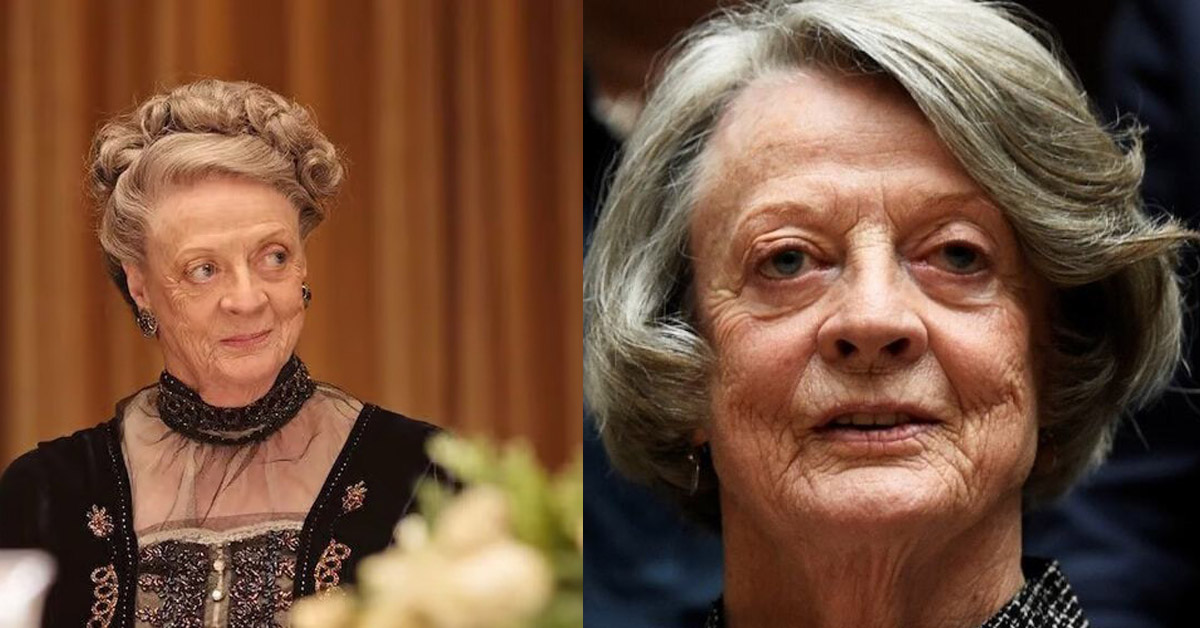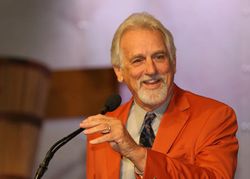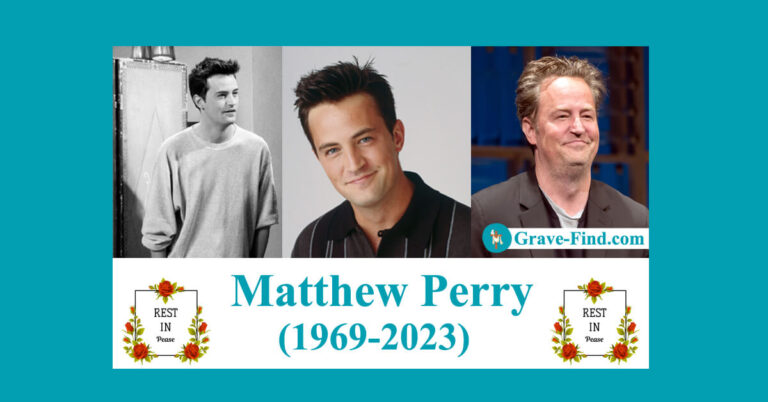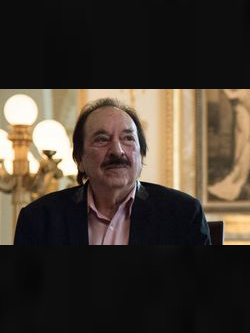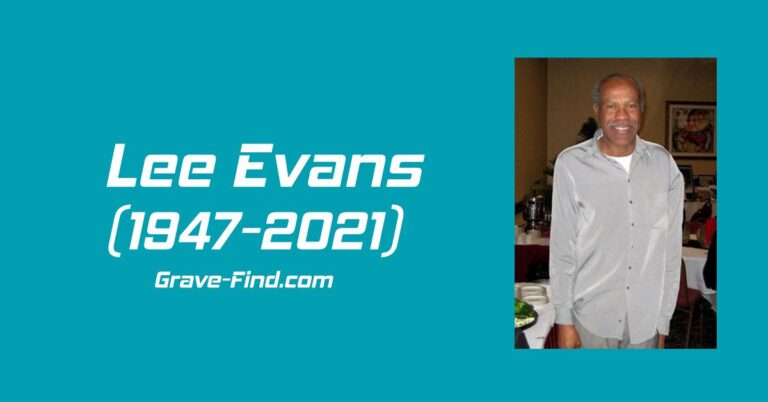Maggie Smith (1927-2024) British Actress
Maggie Smith (1927-2024) British Actress, Dame Margaret Natalie Smith CH DBE was a British actress. Known for her wit in both comedic and dramatic roles, she had an extensive career on stage and screen over seven decades and was one of Britain’s most recognisable and prolific actresses. She received numerous accolades, including two Academy Awards, five BAFTA Awards, four Emmy Awards, three Golden Globe Awards and a Tony Award, as well as nominations for six Laurence Olivier Awards. Smith was one of the few performers to earn the Triple Crown of Acting.
Maggie Smith Bio, Life, Career and Death
Highlights of Dame Maggie Smith
- Full Name: Margaret Natalie Smith
- Born: 28 December 1934, Ilford, Essex, England
- Died: 27 September 2024, London, England (aged 89)
- Occupation: Actress
- Notable Spouses:
- Robert Stephens (m. 1967; div. 1975)
- Alan Beverley Cross (m. 1975; died 1998)
- Children: Chris Larkin, Toby Stephens
- Awards: Renowned recipient of numerous awards throughout her career
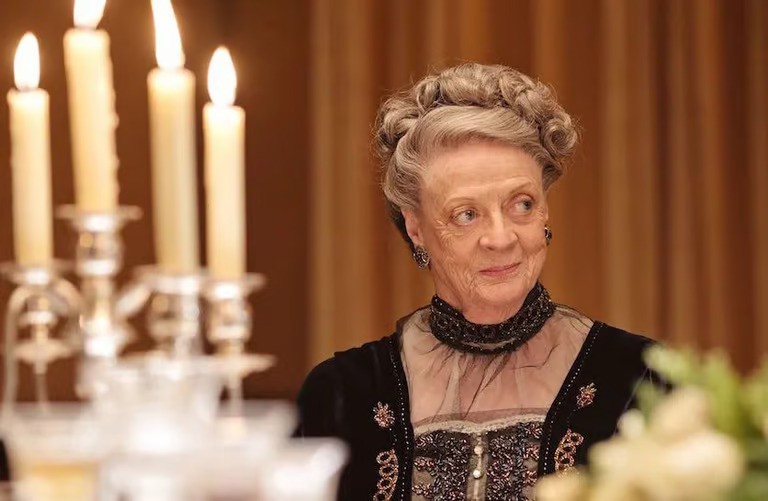
Maggie Smith British Actress Early life and education
Margaret Natalie Smith was born on 28 December 1934 in Ilford, Essex. Her mother, Margaret Hutton (née Little), was a Scottish secretary from Glasgow, and her father, Nathaniel Smith, was a public-health pathologist from Newcastle upon Tyne, who worked at the University of Oxford. The family moved to Oxford when Smith was four years old. She had older twin brothers, Alistair and Ian. The latter went to architecture school. Smith was educated at Oxford High School until the age of 16, when she left to study acting at the Oxford Playhouse.
Smith began her stage career as a student, performing at the Oxford Playhouse in 1952, and made her professional debut on Broadway in New Faces of ’56. Over the following decades Smith established herself alongside Judi Dench as one of the most significant British theatre performers, working for the National Theatre and the Royal Shakespeare Company. On Broadway, she received Tony Award nominations for Noël Coward’s Private Lives (1975) and Tom Stoppard’s Night and Day (1979), and won the Tony Award for Best Actress in a Play for Lettice and Lovage (1990).
Smith won Academy Awards for Best Actress for The Prime of Miss Jean Brodie (1969) and Best Supporting Actress for California Suite (1978). She was Oscar-nominated for Othello (1965), Travels with My Aunt (1972), A Room with a View (1985) and Gosford Park (2001). She portrayed Professor Minerva McGonagall in the Harry Potter film series (2001–2011). She also acted in Death on the Nile (1978), Hook (1991), Sister Act (1992), The Secret Garden (1993), The Best Exotic Marigold Hotel (2012), Quartet (2012) and The Lady in the Van (2015).
Smith received newfound attention and international fame for her role as Violet Crawley in the British period drama Downton Abbey (2010–2015). The role earned her three Primetime Emmy Awards; she had previously won one for the HBO film My House in Umbria (2003). Over the course of her career she was the recipient of numerous honorary awards, including the British Film Institute Fellowship in 1993, the BAFTA Fellowship in 1996 and the Society of London Theatre Special Award in 2010. Smith was made a dame by Queen Elizabeth II in 1990.
Maggie Smith Career
1952–1968: National Theatre
In 1952, aged 17, under the auspices of the Oxford University Dramatic Society, Smith began her career as Viola in Twelfth Night at the Oxford Playhouse. She continued to act in productions at the Oxford Playhouse, including Cinderella (1952), Rookery Nook (1953), Cakes and Ale (1953) and The Government Inspector (1954). That same year, she appeared in the television programme Oxford Accents produced by Ned Sherrin. In 1956 Smith made her Broadway debut playing several roles in the review New Faces of ’56, at the Ethel Barrymore Theatre from June to December 1956. In 1957, she starred opposite Kenneth Williams in the musical comedy Share My Lettuce, written by Bamber Gascoigne. On The Graham Norton Show in 2015, Smith admitted that Olivier had slapped her across the face during a production of Othello in 1964. She appeared opposite Olivier as Sylvia in The Recruiting Officer in 1963–64 and again as Hilde in Ibsen’s The Master Builder in 1964–65. Smith’s 1967 portrayal of Beatrice in Much Ado About Nothing, by Italian director Franco Zeffirelli, is thought to be the earliest British television broadcast of the entire play. The screen version was assumed lost until a copy was discovered in the Library of Congress in Washington, DC in 2010.
Smith appeared in her first film in 1956, in an uncredited role of a party guest in the British drama Child in the House. In 1959, she received the first of her 18 British Academy Film Award nominations for her role as Bridget Howard in the film Nowhere to Go, her first screen credit. In 1963 she appeared in a supporting role as Miss Dee Mead in the British drama film The V.I.P.s starring Richard Burton, Elizabeth Taylor and Orson Welles. She earned her first Oscar nomination for Best Supporting Actress for her performance in the film adaptation of Othello (1965) as Desdemona acting alongside Laurence Olivier, Derek Jacobi and Michael Gambon. During this time she also appeared in the British comedy, Go to Blazes (1962), The Pumpkin Eater (1964) and Young Cassidy (1965). She also appeared in Joseph L. Mankiewicz’s crime comedy The Honey Pot (1967) starring Rex Harrison and Hot Millions (1968) opposite Peter Ustinov and guest-starred as Music Hall Star in Richard Attenborough’s musical comedy Oh! What a Lovely War (1969).
1969–1979: Rise to prominence and stardom
Smith won the Academy Award for Best Actress for her performance in the title role of the 1969 film The Prime of Miss Jean Brodie. Vanessa Redgrave had originated the role on stage in London, and Zoe Caldwell won the Tony Award for Best Actress in a Play when she played the role in New York City. Smith was singled out for her performance in the film. Dave Kehr of Chicago Reader said that Smith gives “one of those technically stunning, emotionally distant performances that the British are so damn good at.” Greg Ferrara wrote that the film “is one of the best British films of the decade. It is as captivating today as it was upon its release and its two central performances by Maggie Smith and Pamela Franklin are both stirring and mesmerizing. The Prime of Miss Jean Brodie is the crème de la crème.” The role also won Smith her first BAFTA Film Award for Best Actress.
In 1962, Smith won the first of a record six Best Actress Evening Standard Awards for her roles in Peter Shaffer’s plays The Private Ear and The Public Eye, again opposite Kenneth Williams. She caught the eye of Laurence Olivier, who, after seeing her in The Double-Dealer at The Old Vic, invited her to become part of his new National Theatre Company soon after it was formed at The Old Vic in 1962. Alongside Derek Jacobi and Michael Gambon, she soon became a fixture at the Royal National Theatre in the 1960s. British theatre critic Michael Coveney wrote that during her eight years in the company, Smith developed a fierce rivalry with Olivier writing, “He knew immediately he’d met his match – that she was extraordinary. He said that anyone who can play comedy that well can also play tragedy and he offered her the likes of Desdemona in Shakespeare’s Othello. But having got her into the company they became not enemies, but professional rivals. Never before had anyone on stage been quicker than him and now, it seemed, there was a contest.” In 1970, Smith played the title role in Ingmar Bergman’s London production of the Henrik Ibsen play Hedda Gabler, winning her second Evening Standard Theatre Award for Best Actress. In 1975, Smith starred in the Noël Coward comedy Private Lives as Amanda Prynne on Broadway at the 46th Street Theatre. The play, directed by John Gielgud, received positive reviews. The New York Times theatre critic praised Smith’s physical comedic skills, writing, “Miss Smith’s body spins, lurches, misses yards at a time before another foot comes down, ends in a paralysis that will require hypnosis to undo. The effect, because Noel Coward’s situation is funny and because Miss Smith sends off that one little extra signal that spells extravagance, is hilarious, explosively so.” Smith received her first Tony Award nomination and a Drama Desk Award nomination. In the mid-1970s, she made several guest appearances on The Carol Burnett Show. For her role on television as Mrs. Silly in All for Love (1983), she received the first of her four Best Actress BAFTA TV Award nominations. In 1987, she starred as Susan in A Bed Among the Lentils, part of Alan Bennett’s Talking Heads series, receiving a second BAFTA TV nomination. In 1981, Smith starred in the Merchant Ivory film Quartet alongside Alan Bates and Isabelle Adjani. The film premiered at the 34th Cannes Film Festival, where it received positive reviews. Smith received her sixth BAFTA Award nomination for Best Actress for her performance as Lois Heidler. She also played the goddess Thetis in Clash of the Titans (1981). In 1982, she starred as Daphne Castle in the locked-room mystery film Evil Under the Sun opposite Peter Ustinov, Jane Birkin and Diana Rigg. The following year, she appeared in the film Better Late Than Never alongside David Niven and Art Carney.
She won her second Best Actress BAFTA Film Award for her role as Joyce Chilvers in the 1984 black comedy A Private Function with Michael Palin. Three pigs were used in the filming of A Private Function, all named Betty. Producer Mark Shivas was advised by Intellectual Animals UK that the pigs used should be female and six months old, so as not to be too large or aggressive. However, the pigs were “unpredictable and often quite dangerous.” During the filming of one of the kitchen scenes, Smith was hemmed in by one of the pigs and needed to vault over its back to escape. She also starred in the 1984 Hungarian–American film Lily in Love with Christopher Plummer.
According to Smith’s biographer, she referred to the film as “the ghoulash” and admitted to not understanding the Hungarian director’s direction. She also called her co-star “Christopher Bummer.” She won her third and fourth Evening Standard Theatre Awards for Best Actress, for her role as Virginia Woolf in Virginia (1981) and as Millament in The Way of the World (1984). She starred in the 1987 London production of Lettice and Lovage alongside Margaret Tyzack, receiving an Olivier Award nomination. She reprised the role in 1990, when it transferred to Broadway, and won the Tony Award for Best Actress in a Play. The play was written specifically for her by the playwright Peter Shaffer. In his New York Times review, Frank Rich wrote, “There is only one Maggie Smith, but audiences get at least three of her in Lettice and Lovage, the Peter Shaffer comedy that has brought this spellbinding actress back to Broadway after an indecently long absence and that has the shrewd sense to keep her glued to center stage.”
Smith portrayed Charlotte Bartlett in the Merchant Ivory production of A Room with a View (1985). The film received universal acclaim, earning 8 Academy Award nominations, including Best Picture. It starred Helena Bonham Carter, Daniel Day-Lewis, Dame Judi Dench, Simon Callow, and Denholm Elliott. Smith earned her fifth Academy Award nomination for Best Supporting Actress and won her second Golden Globe Award and her third British Academy Film Award for Best Actress. She won her fourth BAFTA Film Award for Best Actress for the title role in the 1987 film The Lonely Passion of Judith Hearne. Pauline Kael wrote that Smith “becomes the essence of spinster – she makes you feel the ghastliness of knowing you’re a figure of fun.”
In the early 1990s, Smith appeared in various box-office comedies. In 1991, she played Granny Wendy in Steven Spielberg’s hit movie Hook, a fantasy adventure film based on the Peter Pan character. The film was a financial success, making $300 million at the box office. In 1992, she starred as Mother Superior in the Whoopi Goldberg comedy film Sister Act and its sequel, Sister Act 2: Back in the Habit (1993). Smith also received a third British Academy Television Award nomination for her role as Mrs. Mabel Pettigrew in the 1992 TV film Memento Mori, and her first Primetime Emmy Award nomination for her role as Violet Venable in the 1993 PBS television film Suddenly, Last Summer.
In 1993, she portrayed Lady Bracknell in Oscar Wilde’s comic play The Importance of Being Earnest at the Aldwych Theatre in the West End, receiving her fourth Olivier Award nomination. The following year, she starred in Edward Albee’s Three Tall Women, garnering critical acclaim. Theatre critic Paul Taylor wrote, “Maggie Smith has to be seen to be believed.” She received her record fifth Evening Standard Theatre Award for Best Actress for her performance.
Smith acted in the film adaptation of The Secret Garden (1993), directed by Agnieszka Holland. The film was a critical success, and Smith was praised for her performance as Mrs. Medlock, earning a British Academy Film Award nomination for Best Supporting Actress. In 1995, she portrayed the Duchess of York in the film adaptation of William Shakespeare’s Richard III (1995), starring Ian McKellen in the titular role. The film adapts the play’s story and characters to a 1930s Britain setting, with Richard depicted as a fascist. Smith also starred in another film by Holland, titled Washington Square (1997), playing the incurably foolish Aunt Lavinia Penniman. She won her fifth BAFTA Film Award, this time for Best Supporting Actress, for the 1999 film Tea with Mussolini, in which she played Lady Hester Random opposite Cher, Joan Plowright, and Judi Dench.
In 1996, Smith appeared in the comedy film The First Wives Club alongside Goldie Hawn, Diane Keaton, and Bette Midler. In 1997, she starred in another Albee play, A Delicate Balance, opposite Eileen Atkins, receiving her fifth Olivier Award nomination for her performance as the witty, alcoholic Claire. In 1999, she gained critical acclaim for her performance as Miss Mary Shepherd in Alan Bennett’s drama The Lady in the Van, earning her sixth Laurence Olivier Award nomination for Best Actress. That same year, she starred in the BBC television adaptation of Charles Dickens’ novel David Copperfield, portraying Betsey Trotwood, for which she received British Academy Television Award and her second Primetime Emmy Award nominations.In 1972, Smith starred as the eccentric Augusta Bertram in George Cukor’s film Travels with My Aunt. She received her third Academy Award nomination for Best Actress for her performance. She also appeared in the film Love and Pain and the Whole Damn Thing (1973) directed by Alan J. Pakula. Her other films at this time include Murder by Death (1976), with Vincent Canby of The New York Times writing that the film had one of Simon’s “nicest, breeziest screenplays,” with David Niven and Maggie Smith “marvellous as Dick and Dora Charleston, though they haven’t enough to do.” Smith also starred as Miss Bowers in Death on the Nile (1978) alongside Angela Lansbury, Bette Davis, Peter Ustinov and David Niven. In 1978, Smith played opposite Michael Caine in Neil Simon’s California Suite, playing an Oscar loser, for which she received the 1978 Academy Award for Best Supporting Actress. She was, to date, the only person to win an Oscar for portraying a fictional Oscar nominee. For this role, she also won her first Golden Globe Award. Afterward, upon hearing that Michael Palin was about to embark on the film The Missionary (1982) with Smith, her co-star Michael Caine humorously telephoned Palin, warning him that she would steal the film.
From 1976 to 1980, Smith appeared in numerous productions at the Stratford Shakespeare Festival in Stratford, Ontario, to acclaim; her roles included Cleopatra in Anthony and Cleopatra (1976), Queen Elizabeth in Richard III (1977) and Lady Macbeth in Macbeth (1978). A few years later, Smith would return to Broadway in Tom Stoppard’s original play Night and Day as Ruth Carson in 1979. The play concerns a confrontation between a British diplomat and an African leader over a local uprising that has attracted much media coverage. The diplomat’s wife observes everyone else’s behavior throughout. The play received mixed reviews, with Walter Kerr of The New York Times praising Smith’s performance while critiquing the characters, writing, “Which leaves us, theatrically and dramatically, where we began, with Miss Smith. The actress can, and does, do wonders. But she can’t single‐handedly turn night into day.” Smith received her second Tony Award for Best Actress in a Play nomination.
2000–2009: Harry Potter and other roles
From 2001 to 2011, Smith played Professor Minerva McGonagall in the Harry Potter movies. Smith and Robbie Coltrane, who played Hagrid, were requested for the film by author J.K. Rowling. She reunited with Daniel Radcliffe, who played the titular role of Harry Potter, appearing in seven of the eight films.
In 2016, while promoting The Lady in the Van, Smith shared her experiences working on the Harry Potter films and with Alan Rickman. She said, “He was such a terrific actor, and that was such a terrific character that he played, and it was a joy to be with him. We used to laugh together because we ran out of reaction shots. They would turn the camera around for various shots of amazement or sadness, and we used to say we’d got to about number 200-and-something and run out of knowing what to do when the camera came around on us. But he was a joy.” In 2001, Smith appeared in the British ensemble murder mystery Gosford Park, directed by Robert Altman. The film’s cast included Michael Gambon, Helen Mirren, Kristin Scott Thomas, Eileen Atkins, Emily Watson, Charles Dance, Richard E. Grant, Derek Jacobi, and Stephen Fry. Her portrayal of the haughty Constance, Countess of Trentham, earned Smith her sixth Academy Award nomination for Best Supporting Actress. The film premiered at the 2001 London Film Festival and received critical acclaim, with Roger Ebert awarding it his highest rating of four stars.
2010–2015: Downton Abbey and other roles
From 2010 to 2015, Smith portrayed Violet Crawley, the Dowager Countess of Grantham, in the acclaimed British period drama Downton Abbey. The series became a cultural phenomenon, and Smith’s performance quickly emerged as a fan favorite, earning her three Primetime Emmy Awards, a Golden Globe Award, and four Screen Actors Guild Awards. In a March 2015 interview, she announced that the sixth season would be her last, coinciding with the series’ conclusion.
In 2012, Smith played Muriel Donnelly in The Best Exotic Marigold Hotel, alongside Judi Dench and Bill Nighy. The film was a surprise hit and led to a sequel, The Second Best Exotic Marigold Hotel (2015). That same year, she starred in Dustin Hoffman’s directorial debut, Quartet, which garnered her a 10th Golden Globe nomination. In 2014, she appeared in the romantic comedy My Old Lady alongside Kristin Scott Thomas and Kevin Kline, earning praise for her performance.
1980–1999: Established actress
Smith participated in the filmed event National Theatre Live: 50 Years On Stage in 2013, showcasing live performances from the Royal National Theatre’s history. In 2015, she received critical acclaim for her role in The Lady in the Van, earning nominations for a Golden Globe and a British Academy Film Award. That year, she made her first chat show appearance in 42 years on The Graham Norton Show, discussing her role in the film.
2016–2024: Final years
In 2018, Smith starred in the documentary Nothing Like a Dame, featuring conversations between herself, Judi Dench, Eileen Atkins, and Joan Plowright. The film received positive reviews, with critics praising its humor. Smith also reprised her role as Professor Minerva McGonagall in the video game Harry Potter: Hogwarts Mystery.
In September 2019, she returned to Downton Abbey in a feature-length film that was a box office success. Smith reprised her role in Downton Abbey: A New Era (2022). In April 2019, after an eleven-year hiatus from the stage, she starred in Christopher Hampton’s one-woman play A German Life, receiving acclaim for her performance, which won her a record sixth Best Actress Evening Standard Award.
In 2021, Smith starred in Netflix’s adaptation of A Boy Called Christmas, and in 2023, she featured in the Irish drama The Miracle Club. She was also announced to reprise her role from A German Life in its film adaptation. In October 2023, she was revealed as one of the faces for Loewe’s SS24 pre-collection.
In 2002, she starred in Divine Secrets of the Ya-Ya Sisterhood alongside Sandra Bullock and Ellen Burstyn. That same year, Smith reunited with Dame Judi Dench for David Hare’s stage play The Breath of Life. In 2003, she received her first Primetime Emmy Award for her role as Mrs. Emily Delahunty in the HBO film My House in Umbria, along with her 8th Golden Globe nomination. She acted with Judi Dench again in the film Ladies in Lavender (2004) directed by Charles Dance, and toured Australia in Alan Bennett’s Talking Heads in 2004.
In 2005, she starred as Grace Hawkins alongside Rowan Atkinson and Kristin Scott Thomas in the black comedy Keeping Mum. She appeared in the British costume drama Becoming Jane (2007), focusing on the life of Jane Austen, played by Anne Hathaway.
In 2007, she starred in a revival of Edward Albee’s The Lady from Dubuque at the Theatre Royal Haymarket in the West End. David Benedict of Variety criticized the production but praised Smith, stating that she dominated the second act. In the same year, she starred in another HBO movie, Capturing Mary, for which she was nominated for her fourth Primetime Emmy Award. Smith appeared in Julian Fellowes’s fantasy drama film From Time to Time in 2009, and in 2010, she played Mrs. Docherty in the period fantasy comedy Nanny McPhee and the Big Bang opposite Emma Thompson.
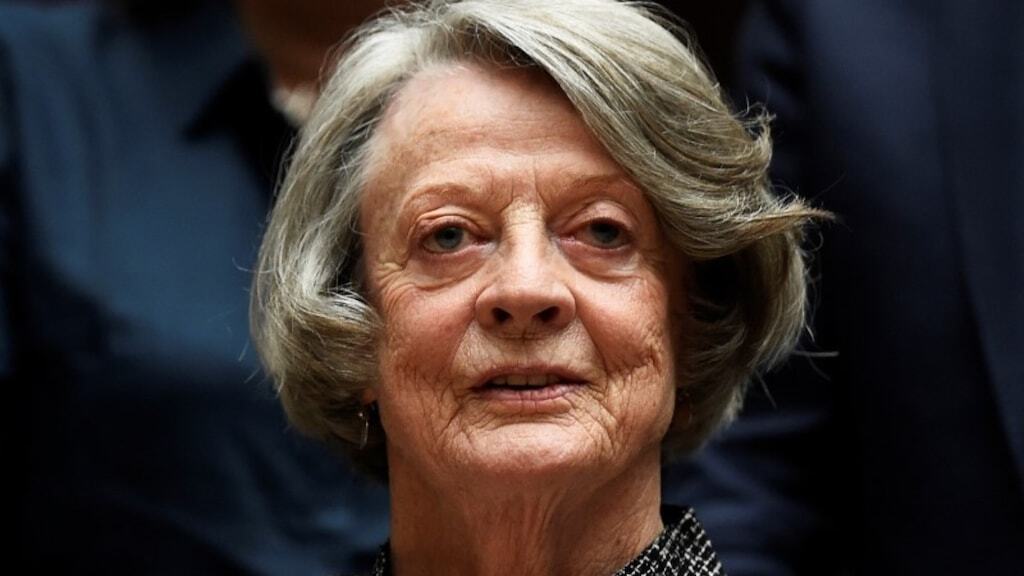
Maggie Smith British Actress Acting credits, awards and legacy
Maggie Smith has received numerous honors throughout her illustrious career. She was appointed a Commander of the Order of the British Empire (CBE) in the 1970 New Year Honours and became a Dame Commander of the Order of the British Empire (DBE) in the 1990 New Year Honours for her services to the performing arts. In 2014, she was named a Member of the Order of the Companions of Honour (CH) for her contributions to drama, making her the third actress to receive this distinction, following Dame Sybil Thorndike and Judi Dench.
Smith has also been recognized by several academic institutions: she was awarded an honorary Doctor of Letters (DLitt) by the University of St Andrews in 1971, the University of Bath in 1986, and the University of Cambridge in 1994. In 2017, she received an honorary fellowship from Mansfield College, Oxford. Maggie Smith’s accolades reflect her remarkable contributions to the arts. She has won a Tony Award, four Primetime Emmy Awards, five British Academy Film Awards, three Golden Globe Awards, and five Screen Actors Guild Awards. In 1993, she received the BAFTA Special Award, followed by the prestigious BAFTA Fellowship in 1996.
At the 2010 Laurence Olivier Awards, she was honored with the Society of London Theatre Special Award. In 2013, she received the Evening Standard Icon Award. Smith also garnered the Shakespeare Prize in 1991 and became a Fellow of the British Film Institute in 1992.
Her achievements include induction into the American Theatre Hall of Fame in 1994 and receiving the Lifetime Achievement Award from Women in Film and Television UK in 1995. In 1999, she was presented with the William Shakespeare Award for Classical Theatre in recognition of her contributions to classical theatre in the US.
Smith was inducted into the Actors Hall of Fame in 2014 and received the Stratford Shakespeare Festival’s Legacy Award in 2012. Further honors include the Critics’ Circle Award for Distinguished Service to the Arts in 2016 and the Bodley Medal from the University of Oxford’s Bodleian Libraries, recognizing her outstanding contribution to the performing arts.
Maggie Smith British Actress Personal life
Marriages
Smith married actor Robert Stephens on 29 June 1967. They had two sons, actors Chris Larkin (b. 1967) and Toby Stephens (b. 1969), and were divorced on 6 April 1975. Smith married playwright Alan Beverly Cross on 23 June 1975, at the Guildford Register Office, and they remained married until his death on 20 March 1998. When asked in 2013 if she was lonely, she replied, “it seems a bit pointless, going on on one’s own, and not having someone to share it with.” Smith had five grandchildren.
Health
In January 1988, Smith was diagnosed with Graves’ disease, for which she underwent radiotherapy and optical surgery.
In 2007, The Sunday Telegraph disclosed that Smith had been diagnosed with breast cancer. In 2009 she was reported to have made a full recovery.
On ageing
In 2016, Smith told NPR that as a character actor, rather than a “dish,” she was able to age into roles as mothers and grandmothers while still developing her talents instead of losing them. The interviewer noted that Smith had, in fact, been called “an undeniable dish” by a reviewer while starring on Broadway in the 1960s.
Charity work
In September 2011, Smith offered her support for raising the NZ$4.6 million needed to help rebuild the Court Theatre in Christchurch, New Zealand, after the earthquake in 2011 that caused severe damage to the area. In July 2012, she became a patron of the International Glaucoma Association (now known as Glaucoma UK), hoping to support the organisation and raise the profile of glaucoma. She was also a patron of the Oxford Playhouse, where she first began her illustrious career. Smith was a vice-president of the Chichester Cinema at New Park and a vice-president of the Royal Theatrical Fund which provides support for members of the entertainment profession that are unable to work due to illness, injury or infirmity.
On 27 November 2012, she contributed a drawing of her own hand to the 2012 Celebrity Paw Auction, to raise funds for Cats Protection. In May 2013, Smith contributed a gnome which had been personally decorated by her, for an auction to raise money for the Royal Horticultural Society Campaign for School Gardening.
In November 2020, Smith joined Kenneth Branagh, Judi Dench, Derek Jacobi and Ian McKellen for a conversation on Zoom entitled For One Knight Only, for the charity Acting for Others. Branagh described the group as “the greatest quartet of Shakespearean actors on the planet” as they talked about the highs and lows of their careers. In April 2021, Smith appeared in a streaming event alongside Kathleen Turner. The event was in support of The Royal Theatrical Fund, which provides support to those who have worked in the industry.
Maggie Smith British Actress Death and reactions
Smith died at the Chelsea and Westminster Hospital in London, on 27 September 2024, aged 89. King Charles III released a statement: “As the curtain comes down on a national treasure, we join all those around the world in remembering with the fondest admiration and affection her many great performances, and her warmth and wit that shone through both on and off the stage.” She was praised by the UK’s prime minister, Keir Starmer, who described Smith as a “national treasure.”
Figures in the entertainment industry who paid tribute to Smith included her Sister Act co-star Whoopi Goldberg, who described her as “a great woman and a brilliant actress. I still can’t believe I was lucky enough to work with the ‘one-of-a-kind’.” Her Harry Potter co-star Daniel Radcliffe, who played Harry Potter, released a statement reading in part, “I will always consider myself amazingly lucky to have been able to work with her…the word legend is overused but if it applies to anyone in our industry then it applies to her.” Another Harry Potter co-star, Emma Watson who played Hermione Granger, released a statement reading in part, “She was real, honest, funny and self-honouring … Thank you for all of your kindness. I’ll miss you.” Her Gosford Park co-star Dame Helen Mirren compared Smith to Queen Elizabeth II saying, “Like the Queen she has been a part of my life since I was a student and she was an icon even then” adding that “she was one of the greatest actresses of the past century.” Others who paid tribute to Smith included Harry Potter creator J. K. Rowling, and Downton Abbey creator Julian Fellowes as well as actors such as Rupert Grint, Bonnie Wright, Hugh Bonneville, Michelle Dockery, Viola Davis, Saoirse Ronan, Kristin Scott Thomas, Harriet Walter, Miriam Margolyes, Mia Farrow, Rob Lowe and musician Paul McCartney.
Maggie Smith British Actress (1927-2024)
Famous Memorial and Join TELEGRAM
